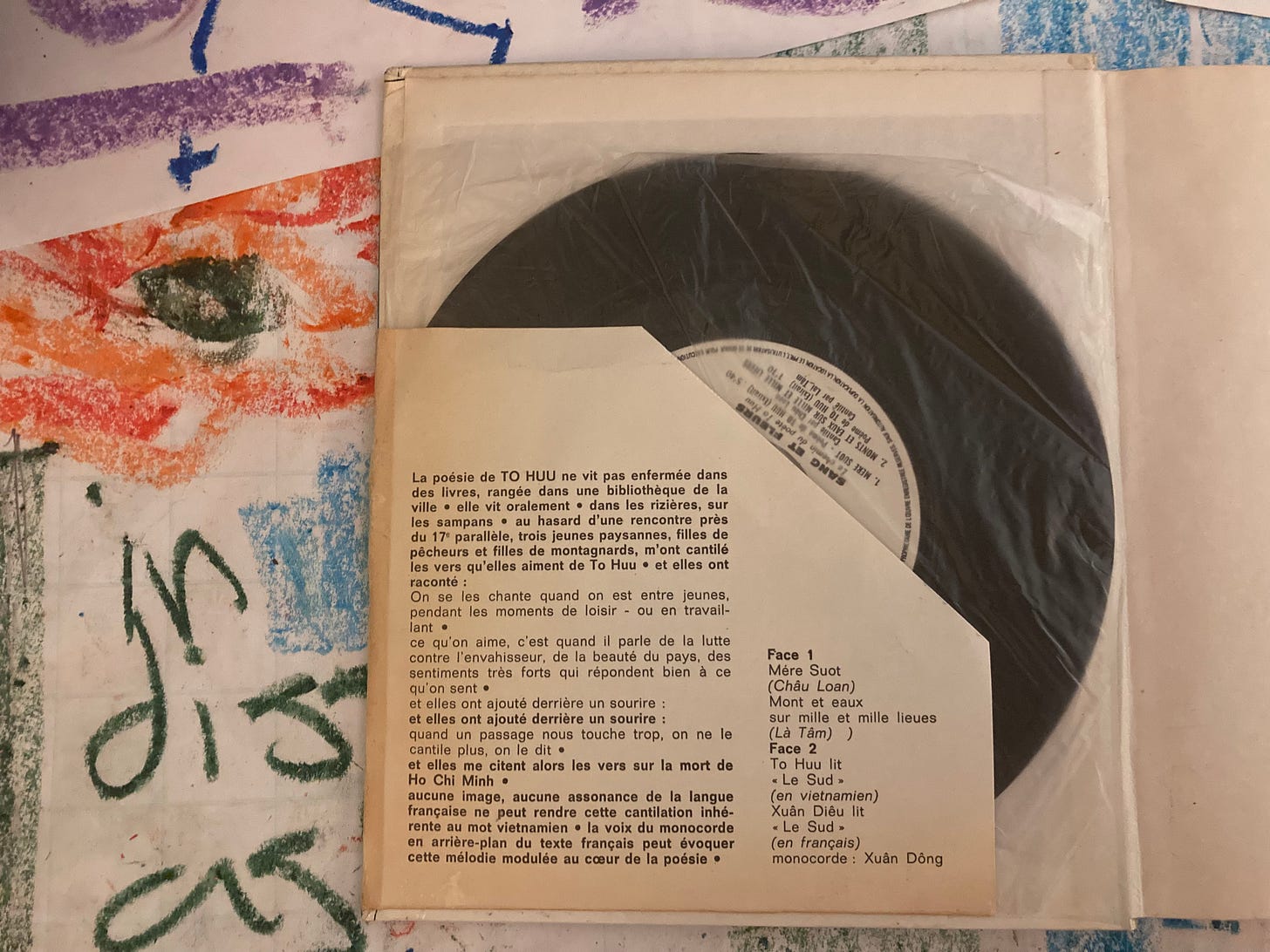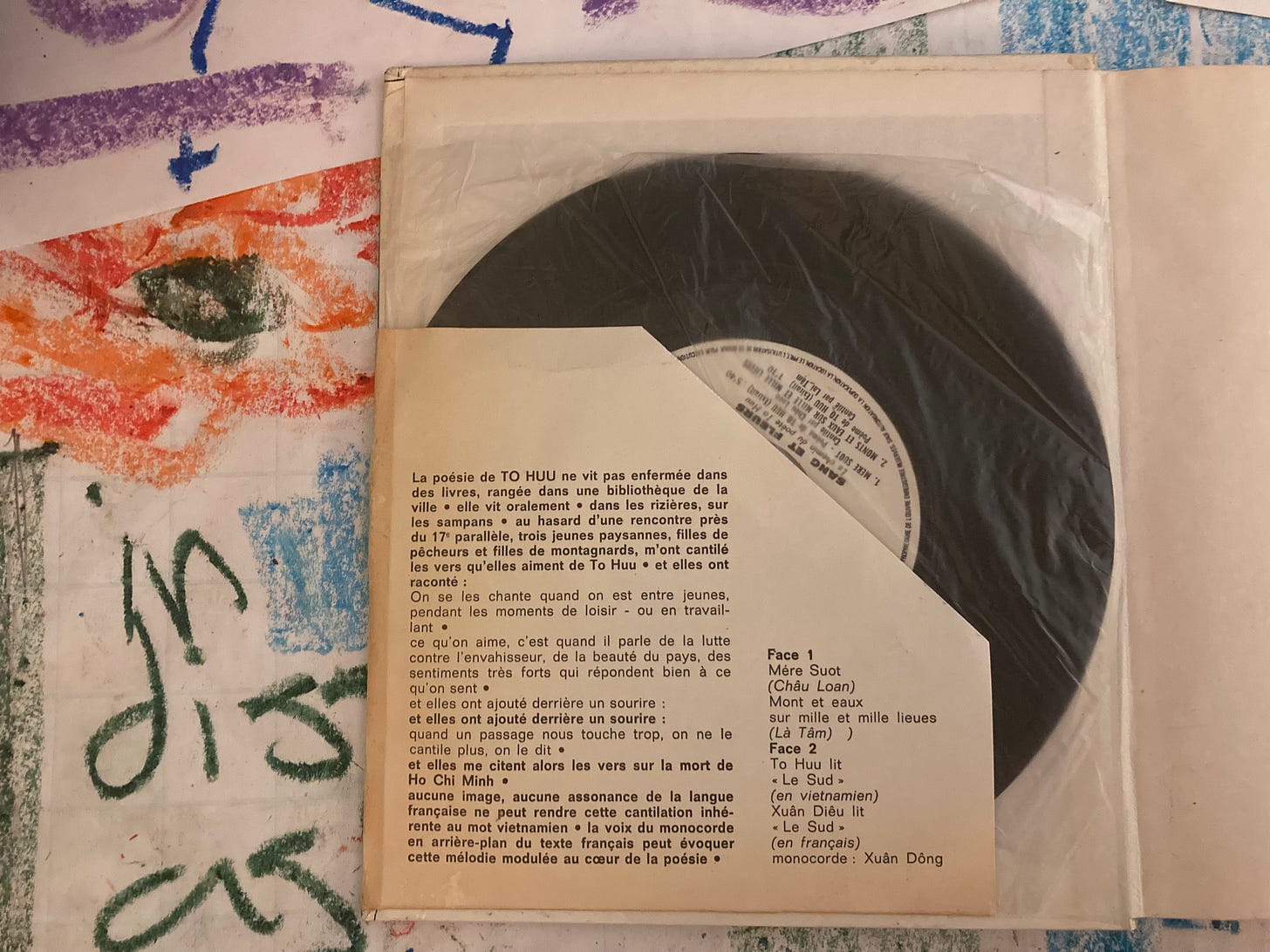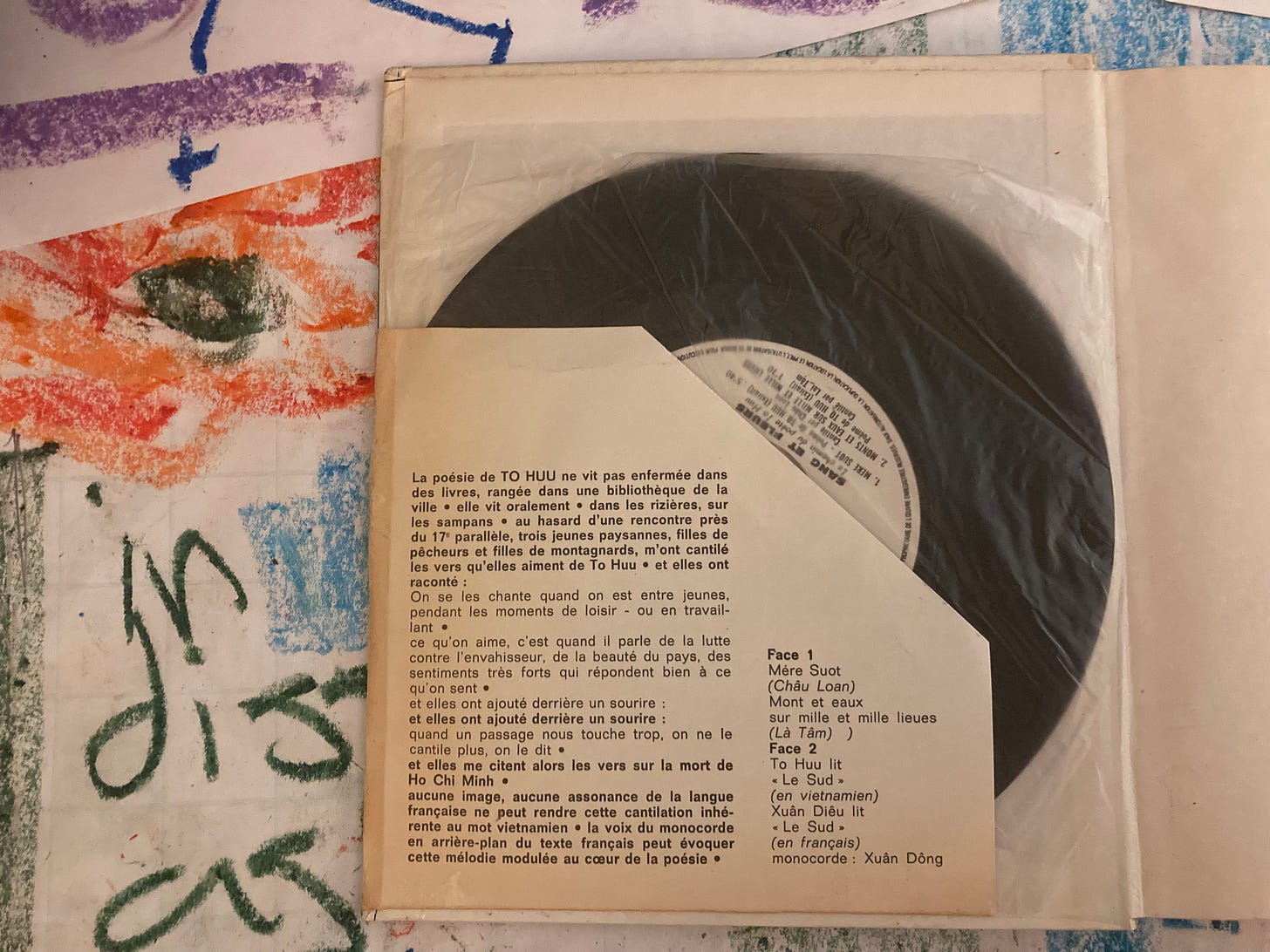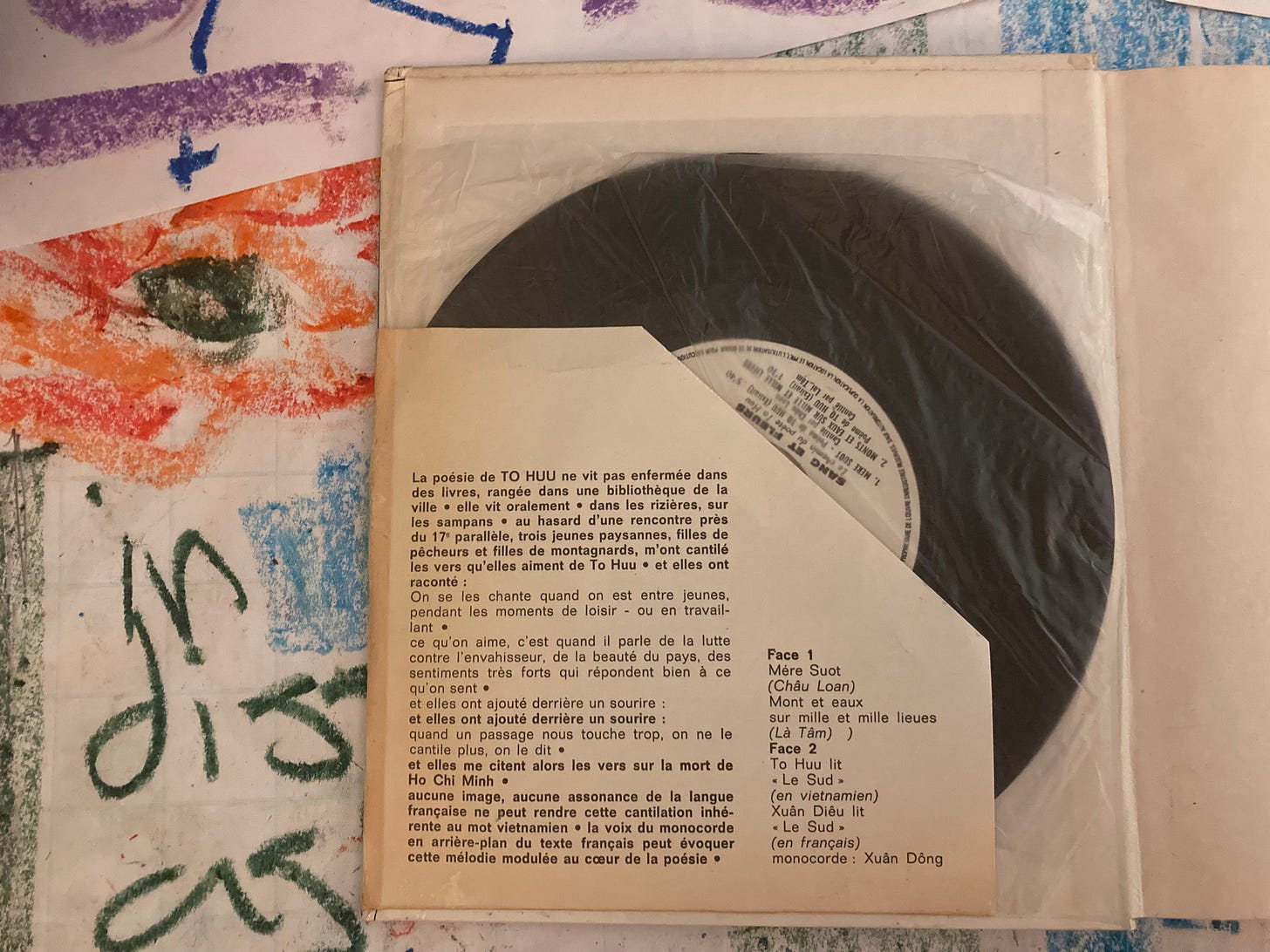Sang et Fleurs (iv)
From poet Tố Hữu and translator Mireille Gansel with poets Xuân Diệu and Pierre Emmanuel at Les Éditeurs français réunis
“The poetry of TO HUU does not live closed up in books, shelved in a library of the town ⋅ it lives orally ⋅ in the paddies, on the sampans ⋅ at a chance encounter close to the 17th parallel, 3 young peasant women, daughters of fishers and daughters of highlanders, sang to me the verses of To Huu they like ⋅ and they told of how:
We sing them when we are among the youth, in moments of leisure - or at work ⋅
what we like, that’s when he talks of the struggle against the invader, the beauty of the the country, very strong sentiments which correspond well to what we feel ⋅
and they added behind a smile:
and they added behind a smile: [sic]
when a passage touches us too much, we sing no more, we say ⋅
and they recited then the verses on the death of Ho Chi Minh ⋅
no image, no assonance of French language may render this cantillation inherent in the Vietnamese word ⋅ the voice of the monochord in the background of the French text may evoke that modulated melody at the heart of the poetry ⋅”
Mireille Gansel did something the educated do in Viet Nam. You listen to what the peasants are reciting lately.
To Huu grew up doing that with his father. And of course his mother was a peasant so one of them was singing to him from birth.
As a revolutionary he wrote for the peasants to broadcast, mouth to ear. I spent my time over there in the city, where a young mother working the gate at my office taught me one of his.
The revolutionary then commissar To Huu was first and last a poet. The people, town and country, sung his words with feeling and pleasure for a good 50 years that I know about.
His people and his words enchanted translator Mireille Gansel. That’s poetry. Anything else I want to say about her book of the poet who policed all the authors starts there.
This was the fourth Viet Nam letter of 5 so far addressing Sang et Fleurs from poet Tố Hữu and translator Mireille Gansel with poets Xuân Diệu and Pierre Emmanuel at Les Éditeurs français réunis.
I sent the first on February 28, 2023, the second on March 3, 2023, the third on March 9, 2023, then the fifth on March 24, 2023.
Viet Nam letters respects the property of others under paragraph 107 of United States Code Title 17. If we asked for permission it wouldn’t be criticism. We explain our fair use at length in the letter of September 12, 2022.








enticing Daniel
The Democracy Wall [1978-79] poets I first met and wrote about were recited widely by youth and their poems turned into songs. While official politics were so dour and gray, underground youth culture was alive and celebratory. Here is one of the shortest ones that everyone could recite:
My Generation
The dark night has given me dark eyes,
I use them to seek light.
一代人
黑夜给了我黑色的眼睛,
我却用它寻找光明